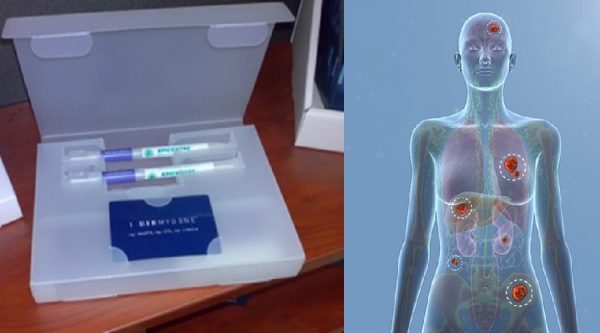
Gene testing for breast and other cancer types
Women who inherit certain genes from parents are at higher risk of developing ovarian and or breast cancer. The three genes BRCA1, BRCA2 and PALB2 can mutate and increase the risk of breast and ovarian cancer in women. If BRCA2 gene BRCA1 genes affected, men have an increased risk of breast cancer or prostate cancer. Whereas, women who inherit mutation in these three genes are at much higher risk of developing one or both cancer types.
During your yearly visit to OBGYN one question that comes up is “whether any of your parents or close family member suffering/suffered from cancer”? Reason for this is mutation can be passed from generation to generation. Some breast cancer patients might not have family history of cancer condition. However, if there is a strong family history of any one of these two cancers, a person can inherit abnormal gene linked to cancer.
What is the function of BRACA and PALB2 genes function? Both these genes handle breast cells growth and prevent cancer cell growth. The mutation in these genes when passed to next generation, it results in abnormal function of genes and cancer risk increases.
Gene testing:
Thanks to modern medical diagnosis, genetic testing a technique that involves testing saliva or blood samples can be analyses to pick up abnormalities. Genetic testing looks for specific mutation in chromosomes, genes, or proteins. Gene testing if positive then it confirms the diagnosis of a hereditary cancer syndrome and shows an increased risk of developing certain cancer(s) in the future.
Genetic testing is not new. Saliva, skin cells, amniotic fluid or blood sample tested by a provider company or at your doctor’s office will be sent to lab (example: Color testing, Myriad Genetic Lab, Ambry Genetics or GeneDx). These results will be kept secret and is confidential. During testing genes separated from rest of the DNA and scanned for abnormalities. Genetic abnormalities also detected by different test methodologies.
At present cost of testing depends on number of gene (single or multiple) test one prefers to undergo. Genetic counselor, health care professional or doctor can help an individual or family understand test results.
The advantage of going through genetic testing is:
- It will confirm abnormal BRCA1 Or BRACA2 gene or reveal normalcy in genes
- If the result is positive, then you can talk to your doctor to get advice about how to go ahead before the cancer spreads
- You can also take advantage of frequent clinical exams, regular pelvic exams, breast cancer screening
- You may consider prophylactic or preventive surgical removal of organs before cancer sets in
- In case cancer develops your doctor will be able to make treatment decisions based on genetic information
- Your family members also will make lifestyle changes and decisions to keep health normal. some of the more common inherited cancer syndromes for which genetic testing is available, Hereditary breast cancer and ovarian cancer syndrome
Few cancer types that are currently detected by gene testing are:
- Genes: BRCA1, BRCA2
Related cancer types: Female breast, ovarian, and other cancers, including prostate, pancreatic, and male breast cancer
- Li-Fraumeni syndrome
Gene: TP53
Related cancer types: Breast cancer, soft tissue sarcoma, osteosarcoma (bone cancer), leukemia, brain tumors, adrenocortical carcinoma (cancer of the adrenal glands), and other cancers
- Cowden syndrome (PTEN hamartoma tumor syndrome)
Gene: PTEN
Related cancer types: Breast, thyroid, endometrial (uterine lining), and other cancers
- Lynch syndrome (hereditary nonpolyposis colorectal cancer)
Genes: MSH2, MLH1, MSH6, PMS2, EPCAM
Related cancer types: Colorectal, endometrial, ovarian, renal pelvis, pancreatic, small intestine, liver and biliary tract, stomach, brain, and breast cancers
- Familial adenomatous polyposis
Gene: APC
Related cancer types: Colorectal cancer, multiple non-malignant colon polyps, and both non-cancerous (benign) and cancerous tumors in the small intestine, brain, stomach, bone, skin, and other tissues
- Retinoblastoma
Gene: RB1
Related cancer types: Eye cancer (cancer of the retina), pinealoma (cancer of the pineal gland), osteosarcoma, melanoma, and soft tissue sarcoma
- Multiple endocrine neoplasia type 1 (Wermer syndrome)
Gene: MEN1
Related cancer types: Pancreatic endocrine tumors and (usually benign) parathyroid and pituitary gland tumors
- Multiple endocrine neoplasia type 2
Gene: RET
Related cancer types: Medullary thyroid cancer and pheochromocytoma (benign adrenal gland tumor)
- Von Hippel-Lindau syndrome
Gene: VHL
Related cancer types: Kidney
Some disadvantage of gene testing:
- It is not clear exactly what should or should not do once results comes in hand.
- If the result is positive, will taking medicine or oral contraceptive could lower risk of developing diseases
- If the result is positive it is not sure removal of breasts or ovaries will lower risk of cancer.
- Normal test results always do not guarantee healthy genes and sometimes with a family history of having cancer test might be normal for known breast cancer mutation.
- If the result is abnormal, it might cause panic, depression, guilty or anger in some women.
In such cases it is better to seek doctor’s advice and a healthy discussion with family members can help. In many countries health related testing including genetic testing regulated under the clinical laboratory improvement amendments (CLIA) program.
Discussion with professions will help to understand recommendations and preventive measures needed for screening. Referring patients to support groups and other information resources and giving emotional support to the person who is receiving the results is part of the counselling. Trained genetic counsellors, professions can help an individual and family members understand gene testing results.
References:
- https://www.cancer.gov/
- https://www.breastcancer.org
- https://www.cancer.net/
- https://ghr.nlm.nih.gov
Image credit:
https://commons.wikimedia.org/wiki/File:MyGene_Genetic_Testing_Kit.jpeg
Prometheus1~enwiki / CC BY-SA (https://creativecommons.org/licenses/by-sa/3.0)
https://commons.wikimedia.org/wiki/File:Stage_4_of_Breast_Cancer.jpg
www.scientificanimations.com / CC BY-SA (https://creativecommons.org/licenses/by-sa/4.0)
Author: Sumana Rao | Posted on: October 12, 2018
« Tips to prevent injury during work out How to manage diabetes complications »






















Write a comment